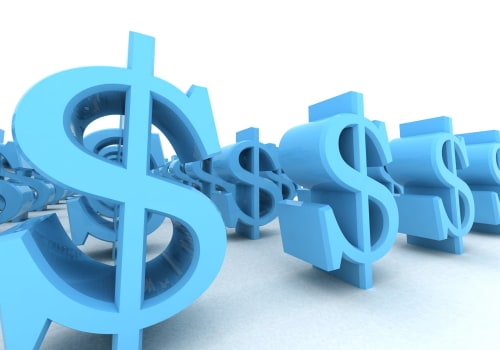A credit card cash advance is a short-term loan on your card account that can have costly consequences. It is a simple transaction that can cause its use to exceed the credit limit and damage its credit rating. Cash advances begin to accrue interest from the day the advance is withdrawn, creating a larger debt than you started with, which can be even more difficult for many people to pay. From time to time, you may need cash but have nothing but credit cards.
Maybe you're in a cafe that only pays money, or your taxi driver doesn't accept plastic. Whatever the reason, a credit card cash advance may seem like a tempting option. But in most cases, it's a terrible idea. In a nutshell, there are three main reasons why a cash advance is an undesirable way to use your credit card.
Firstly, cash advances are expensive due to fees and higher interest rates. Secondly, they don't directly affect your credit score, but the balance of the cash advance will be added to your credit card debt, which can hurt your credit score if you raise your credit utilization ratio too high. Thirdly, you don't have to do much paperwork when requesting cash advances either. To be fair, there are some valid reasons to use a cash advance.
In case of emergency, it's certainly a better way to get money than a payday loan, for example. That said, cash advances on your credit card should only be used if you really need them. A high credit utilization ratio reflects the amount of your available revolving credit you are using and can hurt your credit score if it exceeds 30%. Your credit history will not indicate that you borrowed one either.
It doesn't affect your credit report and no collateral is required to secure the loan. The best thing you can do to avoid taking a cash advance is to plan ahead, create a spending plan, find ways to reduce your expenses, possibly look for ways to increase your income, and start saving money in an emergency fund. Read the cardholder agreement to learn how much a cash advance will cost you before you consider borrowing one. Using your credit card to withdraw cash from an ATM, using one of the convenience checks provided by your card issuer, and using your credit card overdraft protection are all ways your credit card issuer puts money into your hands quickly. Merchant cash advances refer to loans received by companies or merchants from banks or alternative lenders. You can minimize the interest you pay on a cash advance by paying the balance as soon as possible, even if that means paying before your bill arrives in the mail. The rate of use of cash advances has dropped by about a third in recent years due to high interest rates and fees. Credit card companies pay attention to cash advances and some seem to see their frequent use as a potential sign of financial problems.
Many credit card companies are so concerned that they have now lowered their customers' cash advance limits so many people now have a separate cash advance limit that is less (often half) of their regular credit limit. People who apply for cash advances are more likely to not pay their credit card debt than people who don't and this has received criticism over the years for encouraging situations in which people become dependent on cash advances and cannot recover or recover financially. In reality, credit card cash advances are loans and should be avoided unless absolutely necessary due to high interest rates and fees. The option of getting cash from your credit card may seem tempting but it's important to remember that it is not the same as withdrawing cash with your debit card. If you have multiple credit cards, minimize the cost of a cash advance by using the card with the lowest APR for cash advances and not using a card with a high balance. Cash advances do not qualify for introductory offers with no interest or low interest rates. The best way to avoid taking out a costly cash advance is by planning ahead and creating an emergency fund for unexpected expenses. It's important to read the cardholder agreement before considering borrowing one so you know how much it will cost.







Leave Message